In this edition of China Focus we analyse the different options for overseas firms to set up in China and more specifically the China's Private Fund Market and it's participants.
China Update
There have been no new foreign entrants in the Chinese private fund market since our last update in November. In fact the only movement involved Blackrock deregistering their private fund vehicle. This did not however herald a retreat from the worlds largest asset manager as Blackrock has become the first WFOE (Wholly Foreign Owned Enterprise) to be awarded a Public Fund Licenses. This will enable them to tap into the £3.3 trillion retail fund market.
This is a good opportunity to describe the different vehicles available for foreign firms looking to set up a fund presence in China.
Investing Onshore:
Fund Management Company (Public Fund) – This entity allows you to do almost everything in China including mutual funds for Chinese retail investors. No wonder Fidelity, Neuberger Berman and Schroders are reportedly trying to follow Blackrocks lead.Securities Company – Regulated by the CSCR (China Securities Regulatory Commission) this entity is for Investment Bank activities (M&A, IPO) and Sales & Trading (brokerage, market making, short selling etc).
Private Securities Investment Fund Manager (Private Fund Manager) – Regulated by AMAC this entity is specifically for Alternative Investments in China (Private equity, VC, Hedge Fund). Domestic Institutional investors only.
Investing Offshore:
Qualified Domestic Limited Partnership (QDLP) – Regulated by AMAC this entity is for funds that want to invest in overseas securities. Domestic Institutional Investors only and subject to caps and quotas.Qualified Foreign Limited Partner (QFLP) – Similar to QDLP however focus is on overseas private equity investments. Open to offshore as well as domestic Institutional Investors and subject to a different set of caps and quotas.
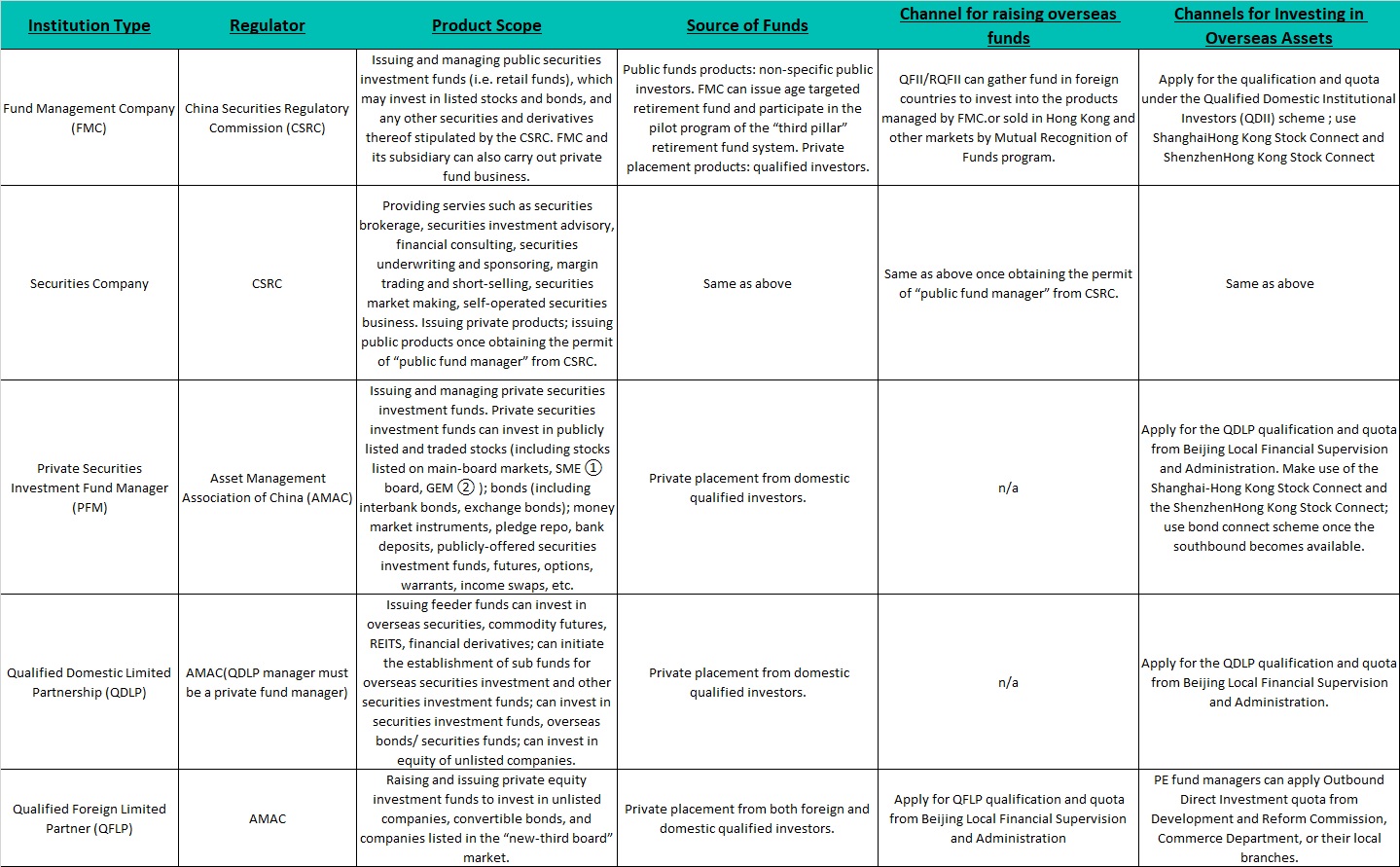
There are other avenues open for cross border investments which include:
QFII (Qualified Foreign Institutional Investor) – A license for foreign institutional investors to invest directly in mainland securities. Subject to limits on holdings.
StockConnect – There are currently three “connections” between
- Shanghai – Hong Kong
- Shenzhen – Hong Kong
- Shanghai – London
-
- The platforms offer access to mainland stocks via Global Depositary Receipts.
- Bond Connect – Offshore (HK) platform allowing overseas institutions to invest in mainland bonds.
- CIBM Direct – same as above however account opening, trading and settlement is onshore so requires a local partner.
- Qualified specific types of commodity futures – China is opening up their futures markets with specific contracts in agriculture, oil and metals now available to trade through a local broker or through the QFII scheme.
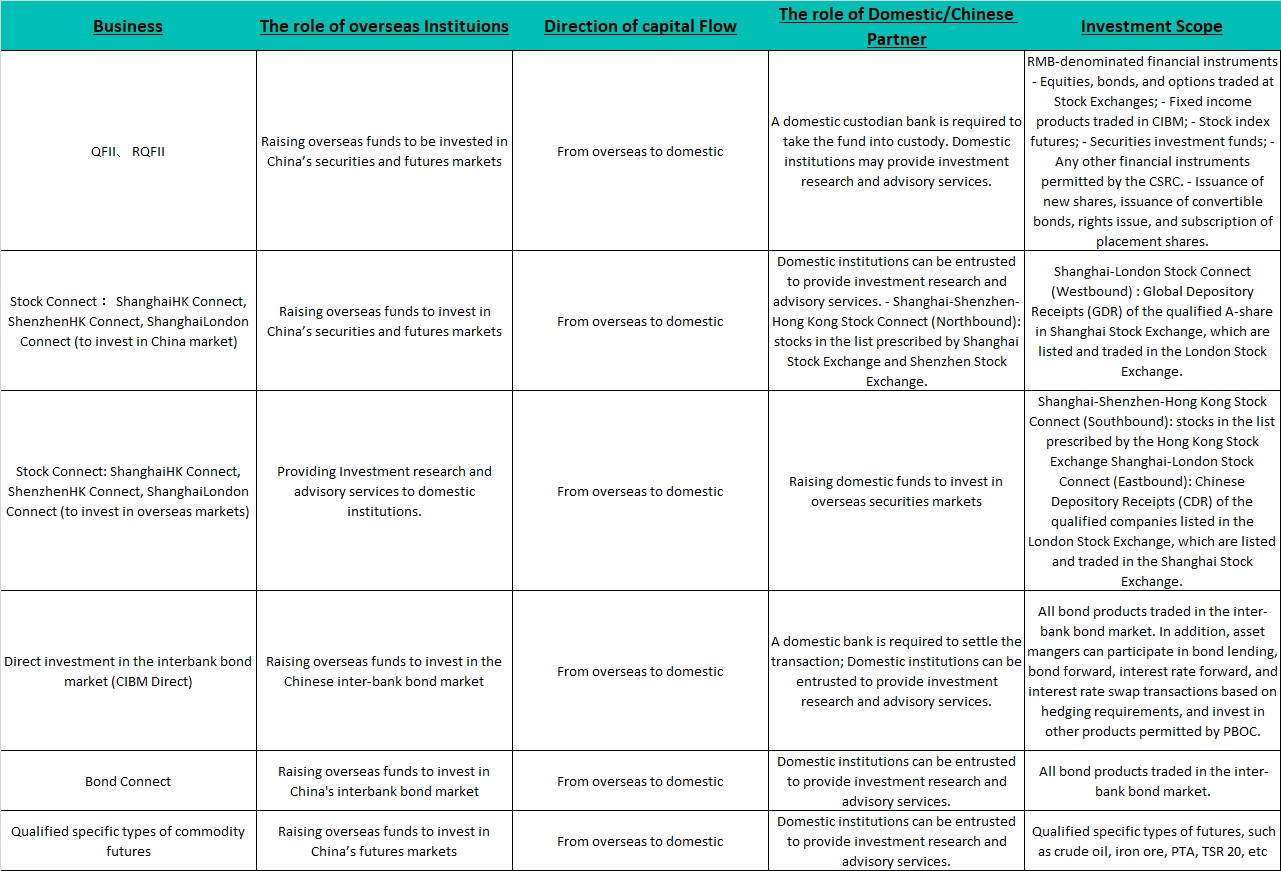
Private Funds
Private funds can be broken down into three basic groupings:

The majority of WFOE Private funds fall into Private Equity / VC type investments. This report however is going to focus on the Private Equity Securities firms (hedge fund type firms that trade on exchange and can only raise money from institutional investors).
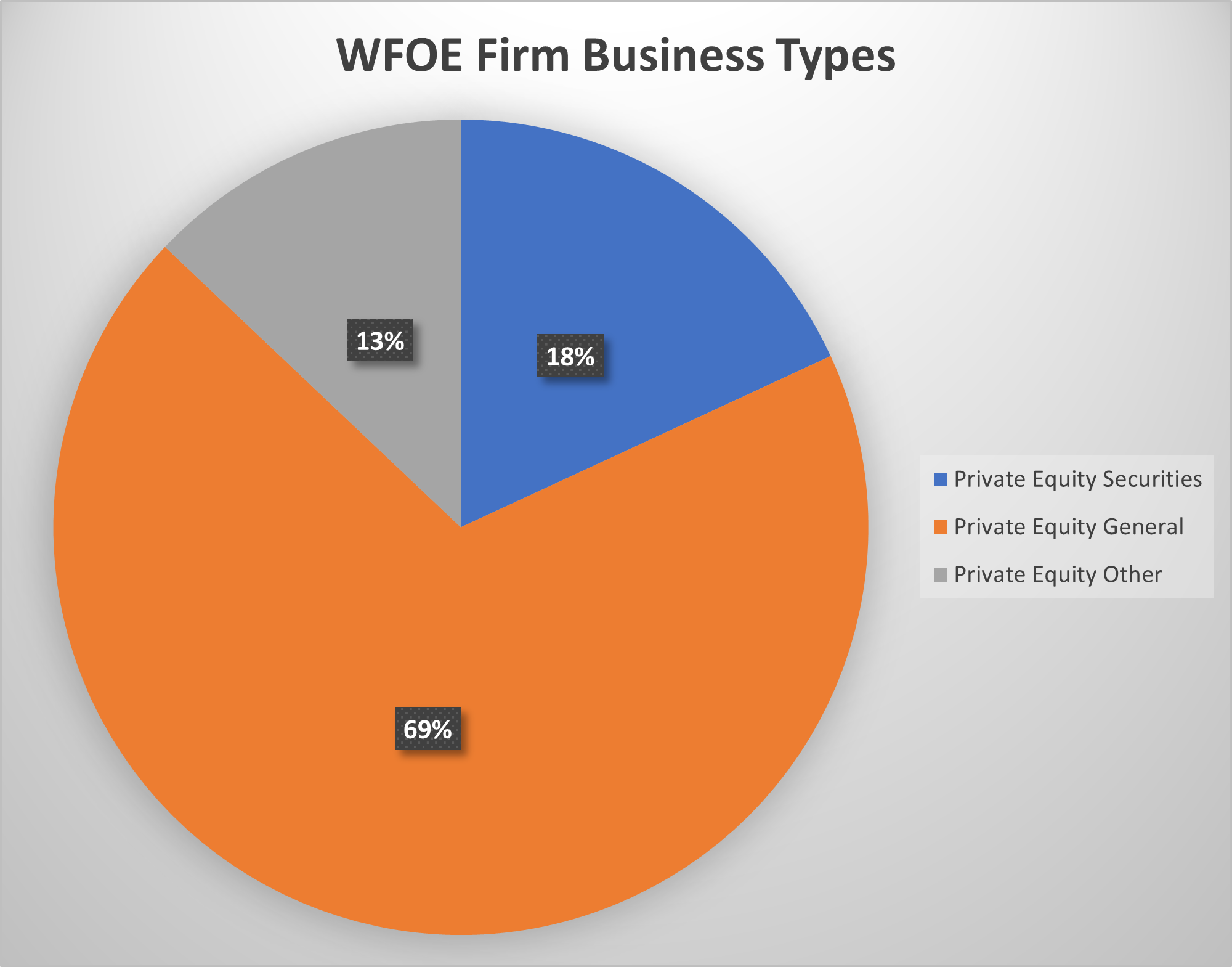
Registered Capital
Excluding Blackrock, the total registered capital across the 31 WFOE PFM firms we analysed in November 2020 was $365 ml. This has grown slightly to $ 398.5 ml with UBS, Fullerton, Eastspring, Two Sigma, Income Partners and William O’Neil increasing the Registered Capital.
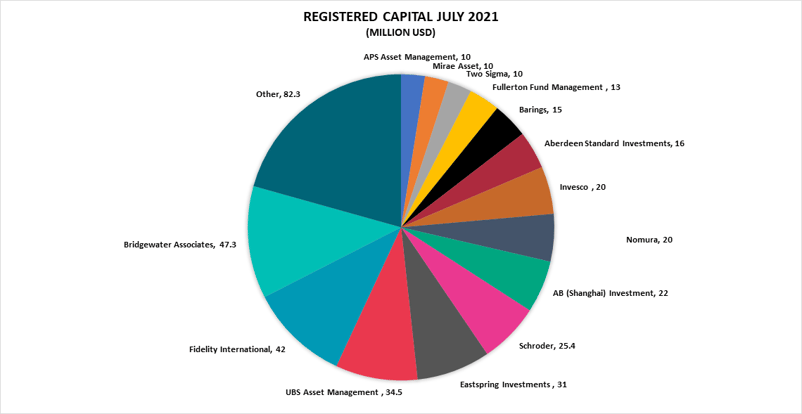
Paid up Capital
Paid up capital also increased from a total of $277ml to $320ml with large increases from Bridgewater and Eastspring Investments. Interesting UBS actually cut their paid up capital from$32ml to $27.5ml.
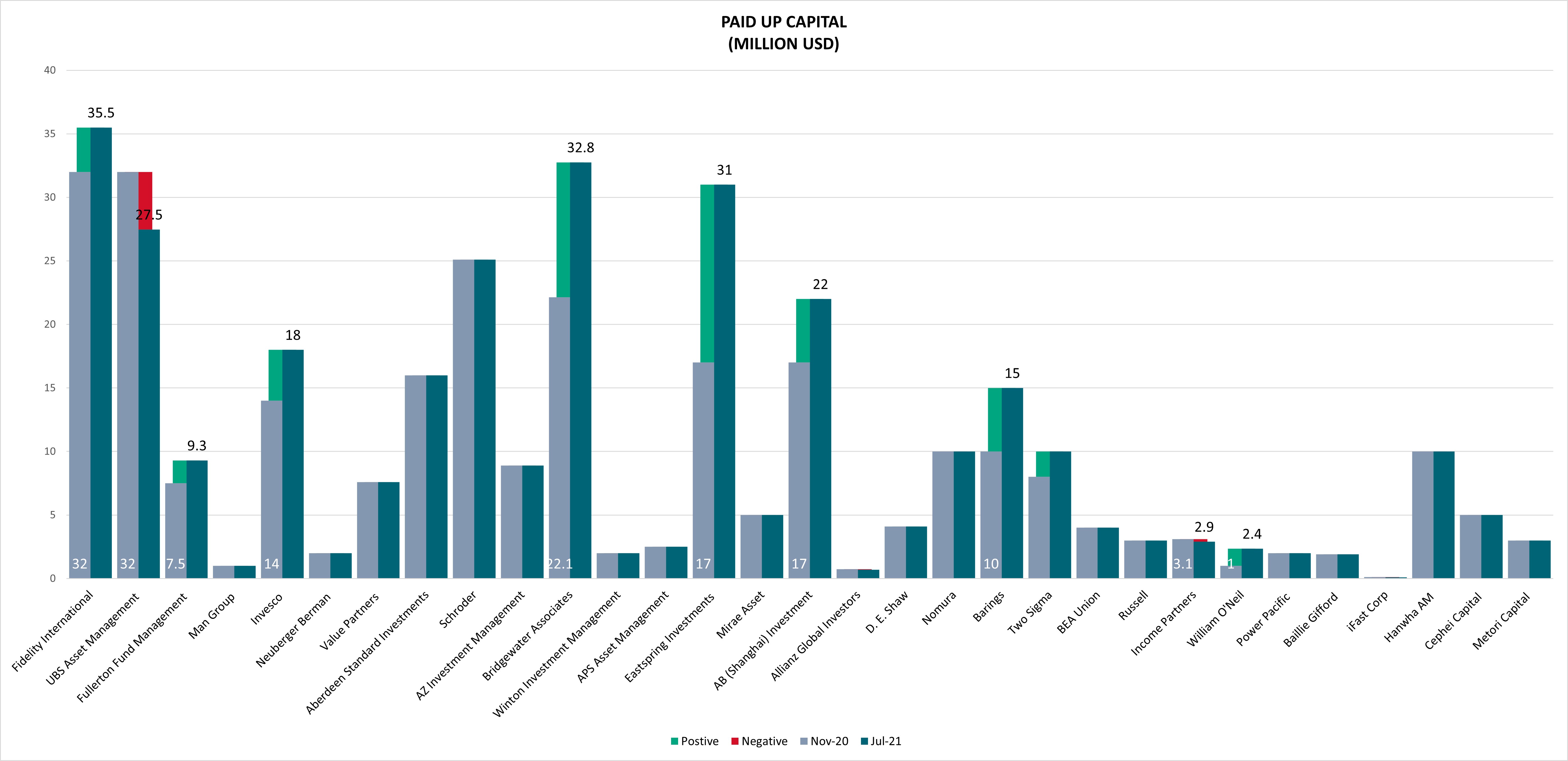
Employees
The number of investment staff across the 31 firms stood at 426 in Nov 2020. This has increased across the board with Fidelity leading the charge adding 43 new investment professionals bring the grand total of investment staff to 543.
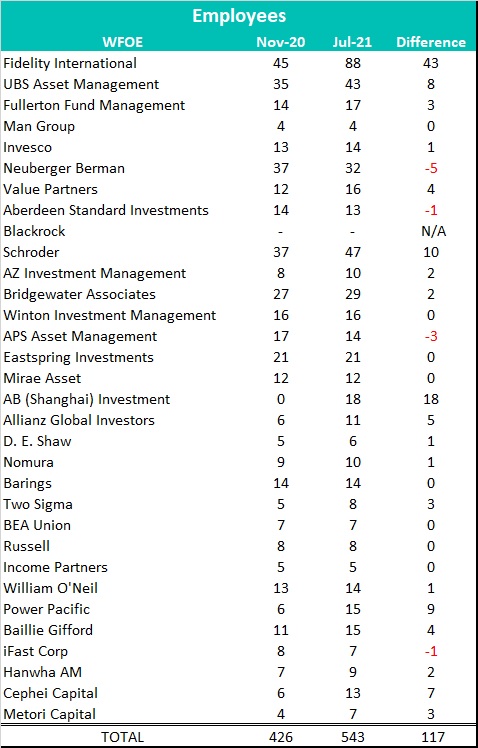
Conclusion
It's unsurprising that there are no new entrants to the domestic fund market given the recent turmoil. It's also a highly competitive market with over 3,500 private funds registered with AMAC. Unless you're Blackrock, becoming a brand name in the domestic market is going to be difficult. However as Chinese markets open up, that local experience and insight will be invaluable.
Fortune favours the brave so good luck to the PFM 32 !!

